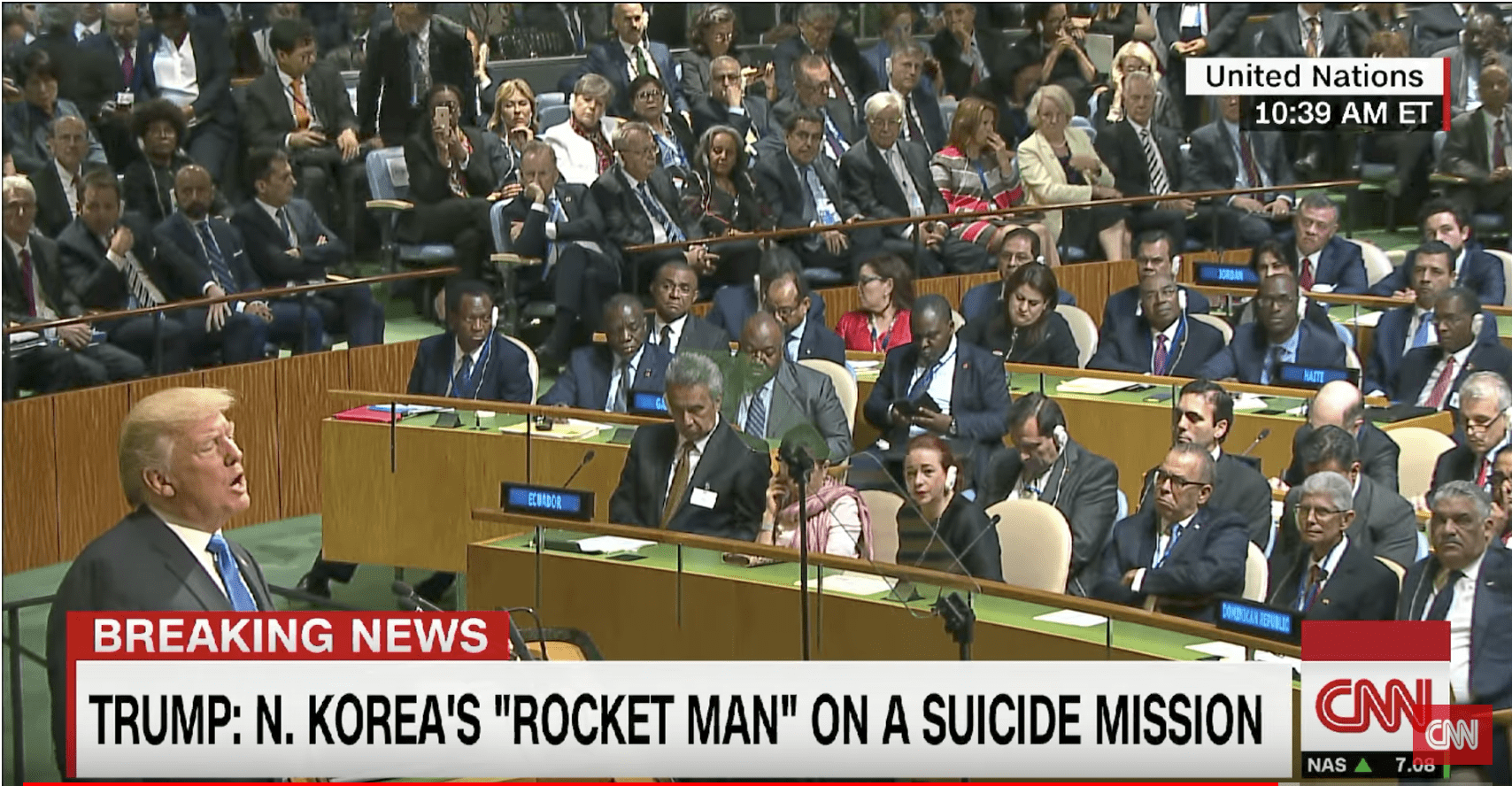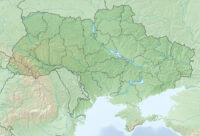United for Peace and Justice (UFPJ) condemns President Donald Trump’s September 19 United Nations speech. That speech signaled, in our estimation, a dramatic turn in US foreign policy toward more aggression and more war.
Filled with threats and falsehoods, Trump’s speech, delivered on the floor of the UN General Assembly, was perhaps the most warlike by a US president in modern times. He not only reiterated military threats to North Korea, possibly involving the use of nuclear weapons. He also threatened four other countries by name (Iran, Syria, Cuba, and Venezuela), claiming their governments are “unacceptable to the US.”
By implication, he also threatened with regime change any state pursuing an independent foreign policy, accusing them of supporting terrorism and aiming to use weapons of mass destruction. Trump brazenly declared, “Rogue regimes represented in this body not only support terrorists but threaten other nations and their own people with the most destructive weapons known to humanity.”
Ironically, Trump’s speech used the word “sovereign” or “sovereignty” ten times, as a guiding principle of his Administration’s foreign policy. But it is precisely the exercise of sovereignty by the world’s states, guaranteed by the UN Charter and international law, that seems to infuriate foreign policy elites seeking to maintain and reassert Washington’s global domination. In the speech’s twisted use of the term, Trump affirmed “sovereignty” for the United States, and in effect subordination for the rest of humanity, thereby upending the concept of sovereign equality that inspires the United Nations.
Since its founding UFPJ has held that sovereign nations have the right to determine their own future, free from the threat of “pre-emptive attacks” and “regime change,” military occupation, and outside control of their economic resources.
As experts on international law have shown, it was illegal for Trump to threaten North Korea with total destruction. Threats of total destruction negate the fundamental principle that the right to choose methods and means of warfare is not unlimited.
There seems to be little reason to hope that the UN speech was a one-off Trump outburst, as demonstrated by his subsequent tweets. His top advisers did not distance themselves from his intemperate language, as they sometimes do. Moreover, almost the moment the speech was given, the US Senate in an 89-9 bipartisan vote called for a whopping increase in military spending to $700 billion a year, giving material reality to the new belligerence. There was no flood of outrage in the mainstream media. The speech represents, then, a basic shift toward a more aggressive US foreign policy by most of the US establishment
The world has seen the devastation caused by the “fire and fury” of nuclear weapons used by the United States on August 6 and 9, 1945, which indiscriminately incinerated tens of thousands of people in the Japanese cities of Hiroshima and Nagasaki.
In early August, on the 72nd anniversary of the U.S. atomic bombing of Nagasaki, Trump’s nuclear threat was particularly reprehensible. Today, nearly 15,000 nuclear weapons, most an order of magnitude more powerful than the Hiroshima and Nagasaki bombs, 94% held by the US and Russia, continue to pose an intolerable threat to humanity and the biosphere. Nuclear war is not an option.
UFPJ calls on all peace groups and organizations to take action (protests, vigils, calling your elected representatives, letters to the editor) to protest the unhinged nuclear threats coming from the mouth of the President and to demand diplomacy and peace.
- All of our organizations should condemn Trump’s UN speech and continuing threats to North Korea as being aggressive, illegal, and war-inciting.
- We demand that the United States de-escalate tensions and intensify diplomacy with North Korea now. No more provocative rhetoric from Trump.
- The United States should fully respect the sovereignty and territorial integrity of North Korea, the other four states denounced by Trump (Iran, Cuba, Syria, Venezuela) and all UN member states.
- The United States should engage in good faith direct talks with North Korea, without pre-conditions, to bring these two nuclear powers back from the brink and to end finally the Korean War.
- The United States and South Korea should immediately cease provocative joint military maneuvers in the region, providing North Korea with an opportunity to reciprocate.
- The United States must deactivate and remove its provocative Terminal High Altitude Area Defense (THAAD) missile defense system deployed near the North Korean border. China’s fears that THAAD’s sophisticated radars could be used to track its own missile systems, potentially giving the U.S. a major advantage in any future conflict, are fueling US-China tensions.
- The United States should negotiate in good faith with North Korea, South Korea and China to replace the 1953 Armistice Agreement with a Peace Agreement, finally ending the Korean War.
- The United States should sign, ratify and rigorously implement the treaty to prohibit the possession, development, testing, use and threat of use of nuclear weapons adopted by 122 countries at the United Nations on July 7 – over U.S. objections.
The UFPJ Coordinating Committee




I don’t see a way to subscribe to your email newsletter